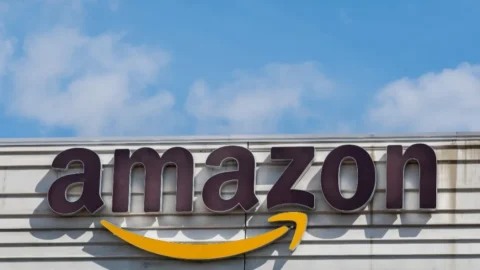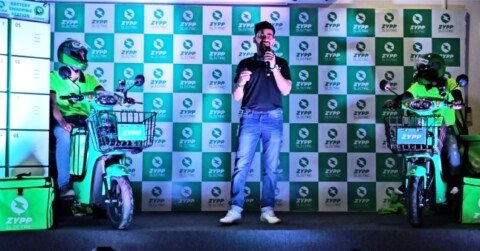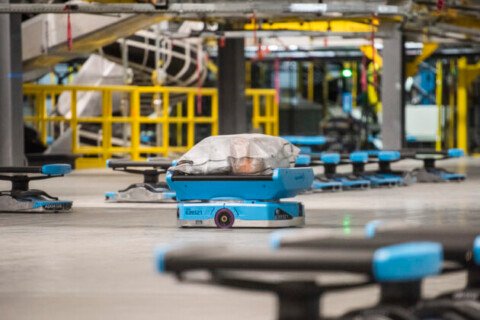India’s homegrown e-commerce marketplace, Flipkart announced it has partnered with Mahindra Logistics Limited (MLL) who will help fast-track deployment of electric vehicles (EVs) across its logistics fleet in the country.
MLL through its own electric delivery brand ‘EDEL’ will enable Flipkart in its journey towards building a green supply chain by not only deploying a large fleet of EVs but also creating a conducive environment for EV deployment and operations across the country. This includes building supporting infrastructure and technology such as charging stations and parking lots, training workforce, route planning and even battery swapping stations in the near future. Another key focus area will be technology and control tower operations to enable greater efficiency and cost competitiveness.
Flipkart has already partnered with many OEMs and introduced two- and three-wheeled electric vehicles in its supply chain. The company’s partnership with MLL EDEL will further propel this momentum and help in deployment at a national scale, further enhanced by infrastructure and technology support that spans charging, tracking, asset, safety, and cost.
MLL, under its brand EDEL, will be procuring different types and classes of electric vehicles from OEMs as it establishes a pan-India EV presence. EDEL already operates a large fleet of EVs, and now aims to scale up the same significantly to support Flipkart’s objectives in the coming months. EDEL’s robust multi-city presence across Bengaluru, Mumbai, Delhi, Pune, Kolkata, and Hyderabad, with a plan to cover the top 20 cities by year end, will help facilitate a seamless and phased transition to EVs for Flipkart’s pan-India supply chain.
Hemant Badri, SVP- Supply Chain, Flipkart Group said, “Electrification of the logistics fleet is an important part of Flipkart’s larger sustainability goal and a key focus area for the company. We are happy to have Mahindra Logistics on-board as a logistics partner, who will play a major role in helping us achieve our vision of making our logistics fleet fully electric by 2030. Through collective efforts, we aim to build and support solutions that boost EV adoption across the country and gradually make a 100% transition to EVs in our logistics fleet.”
Rampraveen Swaminathan, CEO & MD at MLL said, “Mahindra Logistics is deeply committed to sustainability, in line with our RISE philosophy. The EV based last mile delivery service EDEL is aligned to this and provides customers with a sustainable, cost competitive and technology enabled last-mile delivery solution. Our focus is on expanding our network based on our deep partnership with large enterprise customers. We are pleased about this engagement with Flipkart and look forward to partnering with them.”
With a shared commitment and vision towards sustainable business practices, Mahindra Logistics has already launched EDEL in late 2020. EDEL has partnered with companies in consumer and e-commerce to provide sustainable last-mile delivery across six cities in India.
EDEL by Mahindra Logistics is a last-mile delivery cargo service on EVs. EDEL provides multiple offerings, including package and trip-based services. These offerings provide customers with a scalable, sustainable and cost-efficient solution. With a load capacity and enhanced range that compares well with existing ICE options, EDEL gives customers in the e-commerce, FMCG, pharmaceutical, consumer durables and electronics industries a significant edge in efficient and responsible distribution and last-mile delivery solutions.
Flipkart has also recently announced its partnership with leading electric vehicle manufacturers, including Hero Electric, Mahindra Electric and Piaggio, to deploy EVs in its logistics fleet across the country. In line with its sustainability vision, the company has also been working closely with several ecosystem partners on many aspects of electric mobility, including vehicle design, range, load capacity, etc. to build customised vehicles that are best suited for the e-commerce industry.
Flipkart has committed to 100% electric mobility in its logistics fleet and will deploy more than 25,000 EVs by 2030.







